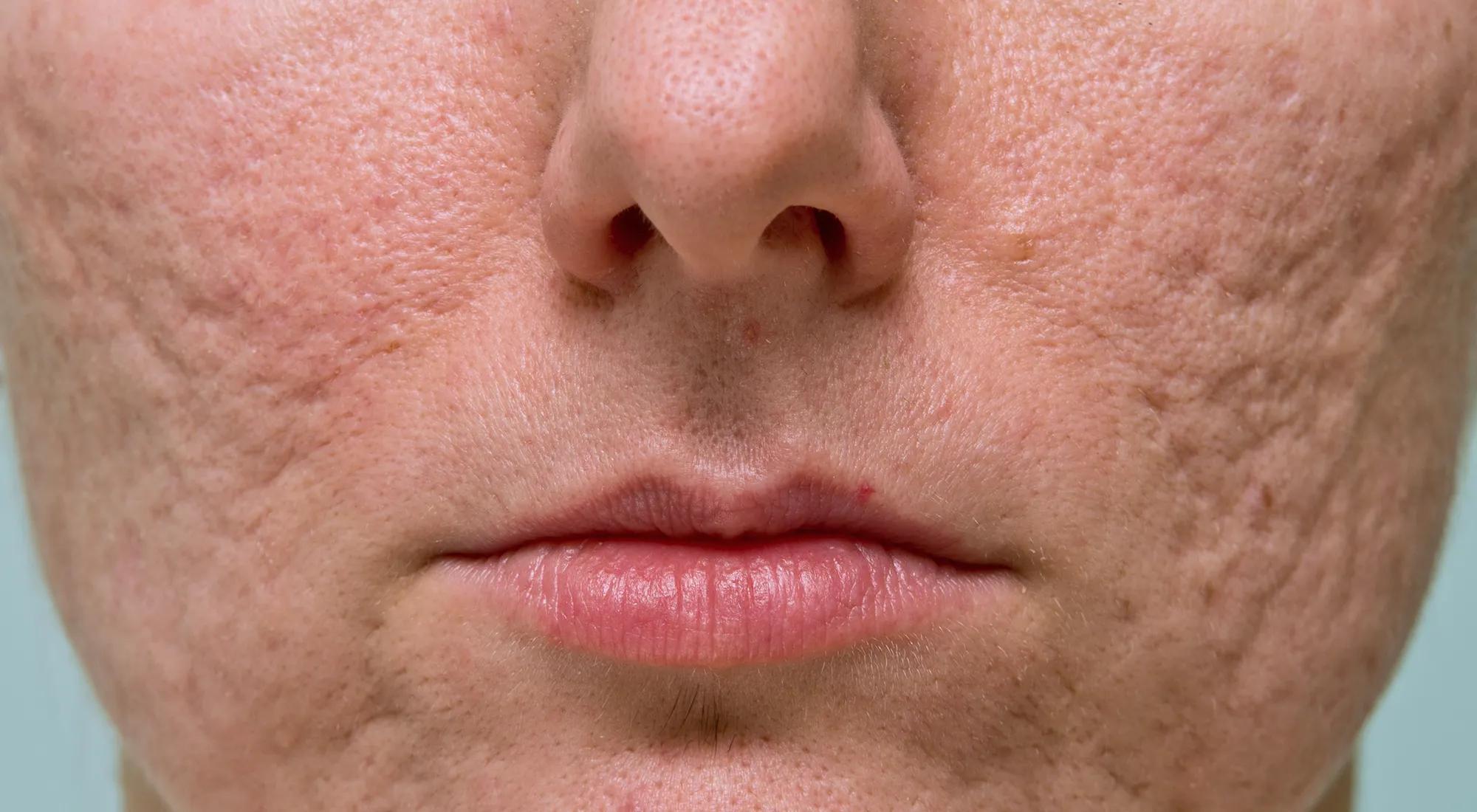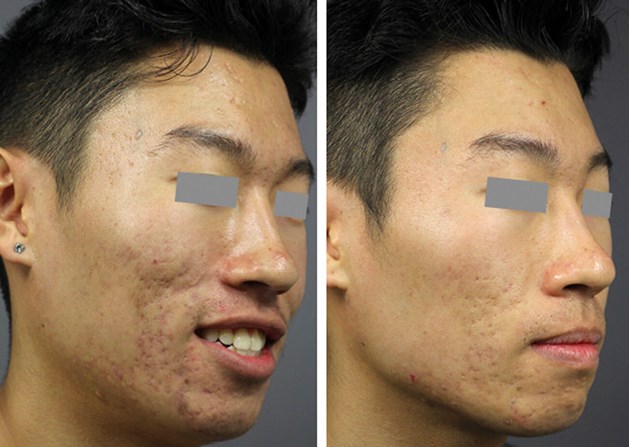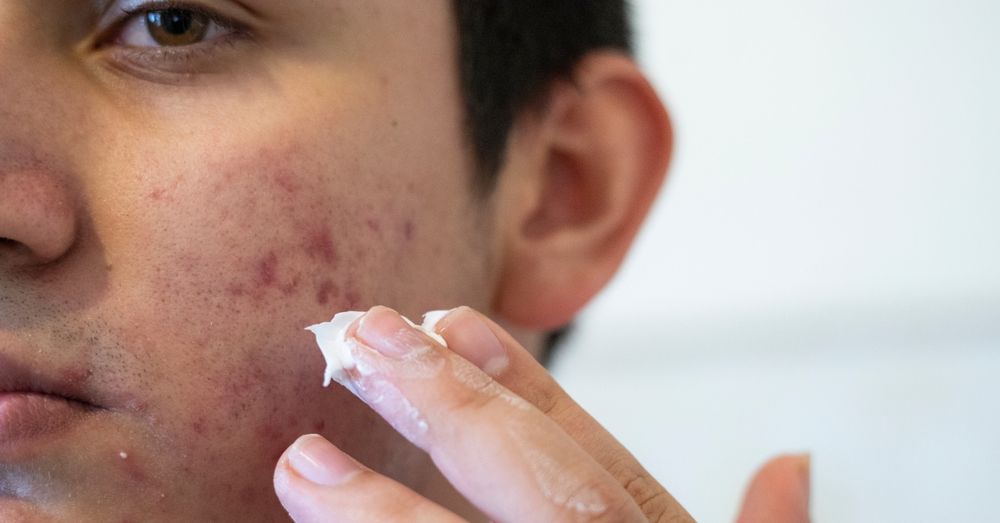Targeted Acne Scars Treatment: Achieve Smooth, Even Skin Tone
Targeted Acne Scars Treatment: Achieve Smooth, Even Skin Tone
Blog Article
Recognizing the Different Skin Problems and Efficient Treatment Options for Acne Marks
Acne marks represent a complex interaction of skin conditions that dramatically influence individuals' self-esteem and general skin wellness. As we check out the landscape of acne mark administration, it comes to be noticeable that the journey towards clearer skin may involve even more than just topical services.
Kinds of Acne Marks

In contrast, hypertrophic scars arise from an overproduction of collagen during the healing process, leading to elevated areas on the skin. These marks are commonly solid and can vary in shade, sometimes showing up red or darker than the surrounding skin.
Comprehending these kinds of acne scars is vital for creating an efficient therapy strategy - acne treatment for sensitive skin. Options may include chemical peels, laser therapy, microneedling, or dermal fillers, tailored to the specific scar type. A complete assessment with a dermatologist can aid identify the most suitable treatment, taking into account the person's skin kind, scar intensity, and general skin health and wellness
Sources Of Acne Scarring
Marking takes place as a result of the body's natural recovery reaction to inflammation and injury caused by acne sores. When acne kinds, it causes an inflammatory response, leading to the release of different cytokines and growth elements that promote healing. This process can often lead to excessive tissue development or insufficient repair work, resulting in scars.
The main sources of acne scarring consist of the extent of the acne itself, duration of the lesions, and specific skin kinds. Extreme inflammatory acne, such as cysts and nodules, is more probable to result in scarring as a result of much deeper cells damages. Additionally, incorrect handling of acne sores, such as selecting or pressing, can intensify cells injury and swelling, increasing the chance of scarring.
Genetic tendency additionally plays a substantial duty; individuals with a family members background of scarring are at a greater risk. Moreover, skin kind and color can influence scar development, as darker skin tones may experience post-inflammatory hyperpigmentation, while lighter skin might establish atrophic scars.
Ultimately, comprehending these causes is necessary in managing acne and reducing the potential for scarring.

Treatment Choices for Scarring
Reliable therapy choices for acne scarring vary depending upon the kind and extent of the marks. Typically categorized right into atrophic, hypertrophic, and keloid marks, these conditions require tailored approaches for ideal results.
For atrophic marks, which are characterized by a loss of cells, therapies such as chemical peels, microdermabrasion, and laser treatment are generally utilized. These techniques promote skin renewal and stimulate collagen manufacturing, thus enhancing skin appearance. Subcision, a minimally intrusive procedure, can likewise work by breaking up coarse bands beneath the skin.
Hypertrophic and keloid marks can be extra testing to deal with. Alternatives include corticosteroid injections to minimize inflammation and flatten the scars. In some situations, cryotherapy or laser treatment may be advised to reduce their appearance.
Surgical choices are readily available for severe scarring, where excision or skin grafting might be necessary. It's essential for individuals to talk to a skin doctor to analyze their particular scar type and talk about the most suitable therapy plan. Combining several treatments typically yields the finest end results, making sure that each person's distinct skin problem is attended to successfully.
Home Solutions and Natural Solutions
Natural options and home solutions can give an accessible method for people looking for to improve the appearance of acne marks (acne treatment for sensitive skin). Various ingredients located in the home cooking area have actually demonstrated potential benefits in enhancing skin structure and advertising recovery

One more effective choice is lemon juice, which works as a natural exfoliant and can lighten hyperpigmentation. Nonetheless, it needs to be made use of carefully, as it might create photosensitivity. Oatmeal masks are also beneficial; their mild peeling can assist remove dead skin cells while calming inflammation.
Vital oils, such as tea tree oil and lavender oil, can even more sustain mark healing as a result of their antimicrobial homes. It is important to carry out a patch examination before using any treatment to make certain there are no unfavorable reactions. These natural remedies can be a complementary method in the trip to diminish acne marks.
Stopping Future Scarring
Taking on a proactive strategy to skincare can considerably decrease the risk of developing future acne scars. Among the crucial strategies is to manage acne successfully click now as it emerges. This includes utilizing non-comedogenic skin care products and drugs recommended by skin specialists that target acne without irritating the skin. Normal cleaning, peeling, and hydration can help keep skin health and wellness and prevent stopped browse around here up pores.
Furthermore, avoiding the temptation to choose or press acne lesions is crucial, as this can cause swelling and succeeding scarring. Rather, individuals ought to concentrate on applying topical therapies that promote recovery and decrease swelling. Active ingredients such as salicylic acid, benzoyl peroxide, and retinoids are recognized for their efficiency in managing acne and lessening scars.
Sun protection is an additional important element; direct exposure to UV rays can hamper and darken scars recovery. As a result, making use of a broad-spectrum sunscreen daily can minimize these impacts - acne treatment for sensitive skin.
Last but not least, preserving a healthy diet plan abundant in anti-oxidants and remaining moisturized assistances skin regrowth. By executing these safety nets, individuals can significantly decrease their risk of future scarring and advertise general skin health.
Verdict
In verdict, an extensive understanding of acne scars, encompassing both hypertrophic and atrophic kinds, is vital for effective treatment approaches. Appointment with a skin specialist stays imperative to design personalized techniques that consider private skin types and mark seriousness, inevitably improving the effectiveness of scar administration methods.
Acne marks represent a complicated interplay of skin conditions that considerably impact individuals' self-confidence and general skin health and wellness. The 2 key find this categories of acne marks are atrophic and hypertrophic marks. These marks are more classified into 3 subtypes: ice choice marks, which are slim and deep; boxcar marks, which are wider and have distinct edges; and rolling scars, which create a wave-like look due to unequal skin structure.
A comprehensive consultation with a skin doctor can aid identify the most suitable treatment, taking into account the person's skin kind, scar severity, and general skin wellness.
Appointment with a dermatologist stays critical to create personalized techniques that think about individual skin types and mark intensity, eventually improving the effectiveness of scar management strategies.
Report this page